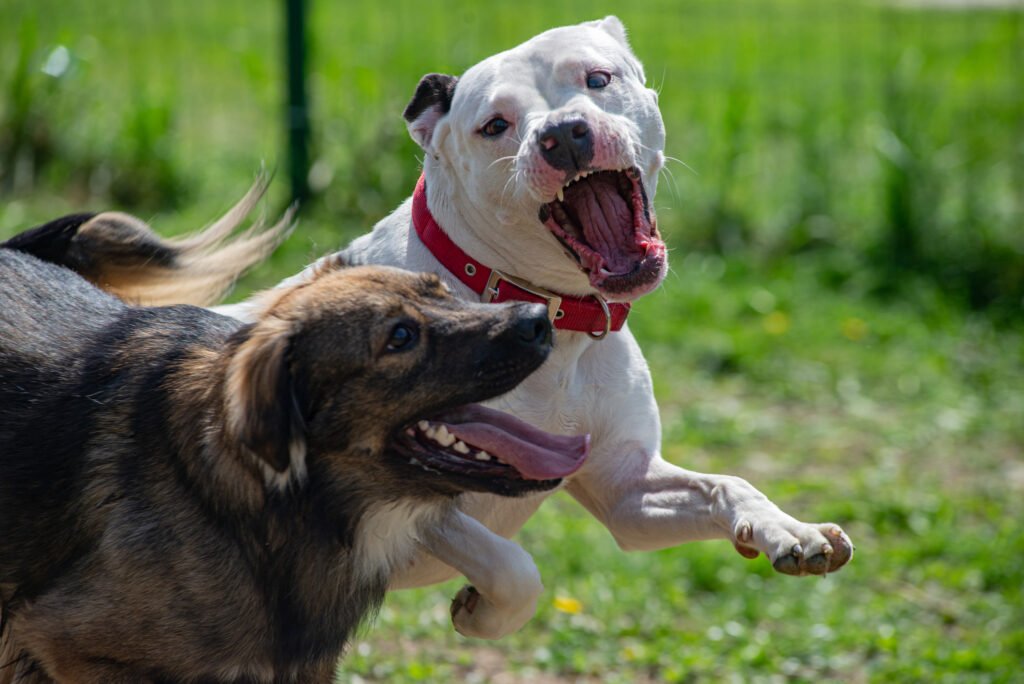Table of Contents
In “Common Misconceptions About Dog Training,” this article explores the common misconceptions that many dog owners have when it comes to training their furry friends. It emphasizes the importance of accurately diagnosing a dog’s behavior, as misjudgments can lead to negative consequences. The article also highlights the potential problems of relying solely on online information, stressing the need for professional help from experts in the field of dog behavior and training. From debunking the idea of dogs behaving out of spite to explaining the effective use of training tools, this article offers valuable insights and tips for dog owners looking to improve their training methods. With enthusiasm, determination, and the guidance of experts, dog training can be a rewarding and successful endeavor.

Misdiagnosing a dog’s behavior
Consequences of misdiagnosing
Misdiagnosing a dog’s behavior can have serious consequences, both for the dog and for the owner. When we fail to accurately assess and understand our dog’s behavior, we may inadvertently encourage or reinforce negative behaviors. This can lead to a range of issues, from minor inconveniences and frustrations to more serious problems such as aggression or destructive behavior. By misdiagnosing a behavior, we may not address the root cause, making it difficult to find effective solutions and improve the dog’s overall well-being.
The importance of accurately assessing behavior
Accurately assessing a dog’s behavior is crucial for effective training and behavior modification. It allows us to understand the motivations behind certain behaviors and address any underlying issues or triggers. By properly diagnosing a behavior, we can tailor our approach to training and ensure that we are providing the appropriate guidance and support to our furry friends. Taking the time to observe and analyze their behavior can help us identify patterns and make informed decisions about how to best help them overcome any challenges they may be facing.
Relying on online information
Inaccuracy and unreliability of online sources
While the internet can be a valuable resource for pet owners, it is important to approach online information about dog behavior with caution. The abundance of websites, forums, and social media groups can make it overwhelming to sift through the vast amount of information available. Unfortunately, not all of this information is accurate or reliable. Anyone can post content online, regardless of their qualifications or expertise. This means that there is a risk of stumbling upon incorrect or outdated information that may do more harm than good when applied to your dog’s behavior.
Dangers of following incorrect advice
Following incorrect advice based on misinformed or unreliable sources can lead to negative consequences for both you and your dog. Inappropriate training techniques or misguided behavior modification methods can worsen a dog’s behavior or even cause physical and psychological harm. It is crucial to verify the credibility of the sources you consult online and to approach new information critically. When in doubt, it is always best to seek guidance from professionals who have the knowledge and experience to provide accurate and safe advice for your dog’s specific needs.

Seeking professional help
Importance of consulting experts
When it comes to understanding and addressing your dog’s behavior, consulting with professionals in dog behavior and training is highly beneficial. These experts have undergone extensive education and training to specialize in understanding canine behavior. They can provide valuable insights into your dog’s specific needs and help you develop a tailored training plan to address any behavior issues. Their expertise and experience can give you confidence in your approach and help you navigate any challenges you may encounter along the way.
Benefits of working with professionals in dog behavior and training
Working with professionals in dog behavior and training offers a range of benefits. These professionals have a deep understanding of canine behavior, allowing them to accurately assess your dog’s behavior and provide effective solutions. They can guide you in implementing appropriate training techniques and help you navigate any setbacks or challenges that may arise. Additionally, their support can help you build a stronger bond with your dog and improve your overall relationship. By seeking professional help, you are investing in your dog’s well-being and ensuring that their behavior is addressed in a safe and effective manner.
Understanding dog behavior
Behavior due to reinforcement
Dogs are highly receptive to reinforcement, and their behavior is often influenced by the consequences of their actions. Positive reinforcement, such as rewards and praise, can encourage desired behaviors and strengthen the likelihood of their repetition. Conversely, negative reinforcement or punishment can discourage unwanted behaviors. By understanding how reinforcement affects behavior, we can use this knowledge to shape our dogs’ behaviors in a positive and constructive way.
Importance of clear instructions
Clear and consistent instructions are crucial when training a dog. Dogs thrive on routine and clear communication. Unclear instructions can lead to confusion and frustration, making it difficult for your dog to understand what is expected of them. By providing clear and concise instructions, you can help your dog understand and respond to your commands more effectively, making the training process smoother and more enjoyable for both of you.
Motivations for certain behaviors
It is important to recognize that dogs engage in certain behaviors for a variety of reasons. These motivations can include seeking attention, satisfying natural instincts, responding to environmental stimuli, or communicating their needs. Understanding the underlying motivations behind your dog’s behavior can help you address the root cause and provide appropriate alternatives or solutions. It allows you to tailor your training approach to meet their specific needs and ensure that their behavior is addressed effectively.

Training needs of puppies
Learning appropriate behaviors
Puppies have a natural inclination to explore and learn about their surroundings. It is important to provide them with guidance and teach them appropriate behaviors from an early age. By setting clear boundaries and consistently reinforcing desired behaviors, you can instill good habits and prevent the development of unwanted behaviors. Positive reinforcement training techniques, such as reward-based training, can be particularly effective in teaching puppies appropriate behaviors and fostering a positive learning environment.
Guidance and socialization for puppies
Socialization is a crucial aspect of a puppy’s training and development. Exposing puppies to different people, animals, and environments at a young age can help them become well-adjusted and confident adult dogs. It is important to introduce your puppy to new experiences gradually and in a positive and controlled manner. This will help them build positive associations and develop important social skills. Providing guidance and support during this critical period of their development can help shape their behavior and set them up for success as they grow older.
Using food as treats
Safe and appropriate human food
Food can be a powerful motivator when training dogs, and many dog owners use food as treats during training sessions. While it is important to use treats sparingly to prevent weight gain or dependence on food rewards, there are safe and appropriate human foods that can be used as treats for dogs. These can include small pieces of cooked chicken, cheese, or vegetables such as carrots or green beans. However, it is crucial to avoid giving dogs foods that are toxic to them, such as chocolate, onions, or grapes. Always consult a reliable source or your veterinarian to ensure that the food you are using as treats is safe for your dog.
Importance of moderation
While using food as treats can be an effective training tool, it is important to use moderation and ensure that your dog maintains a balanced diet. Treats should only make up a small portion of their daily caloric intake, and it is essential to adjust their regular meals accordingly to prevent overfeeding. Overindulgence in treats can lead to weight gain, nutritional imbalances, and other health issues. By using treats in moderation and as a supplement to a healthy diet, you can effectively reward your dog’s good behavior without compromising their overall health.

Misunderstanding dominance in dog training
Common misconceptions about dominance
Dominance is a concept that is often misunderstood and misinterpreted in the context of dog training. Contrary to popular belief, dominance in dogs is not about asserting control or dominance over their owners or other animals. Instead, it refers to a dog’s social hierarchy and their need for clear leadership and guidance. Misconceptions about dominance can lead to incorrect training techniques and interactions that may worsen behavior problems or create unnecessary power struggles. By understanding the true meaning of dominance, we can approach dog training with a more effective and compassionate mindset.
Proper understanding and application
A proper understanding of dominance in dog training involves recognizing that dogs thrive in a structured and predictable environment. They require clear rules, boundaries, and consistent guidance to feel secure and confident. It is our role as owners to establish ourselves as fair and reliable leaders and provide our dogs with the structure and guidance they need. This can be achieved through positive reinforcement training techniques, clear communication, and setting realistic expectations for our dogs. By focusing on building a trust-based relationship rather than asserting dominance, we can create a harmonious and cooperative partnership with our furry companions.
Addressing problematic behaviors
Importance of recognition and correction
Addressing and correcting problematic behaviors in dogs is crucial for their overall well-being and the well-being of those around them. It is important to recognize and acknowledge these behaviors rather than dismissing them as excitement or playfulness. By identifying the root cause of the behavior and addressing it effectively, we can help our dogs lead happier and more fulfilling lives. Ignoring or minimizing problematic behaviors can lead to escalation, increasing the risk of injury or harm to both humans and other animals.
Avoiding dismissing behaviors as excitement
It is common for dog owners to dismiss certain behaviors, such as jumping or barking excessively, as merely excitement or playfulness. While it is true that dogs may exhibit these behaviors when they are excited, it is important to address them appropriately to prevent them from becoming problematic. By providing clear instruction and consistent reinforcement, we can help our dogs learn alternative behaviors and redirect their energy in a positive and constructive manner. It is important to remember that our dogs look to us for guidance and rely on our leadership to understand what behaviors are acceptable.

Effective training tools
Proper use of prong collars
Prong collars, when used correctly and under the guidance of an experienced trainer, can be an effective tool for certain dogs. These collars have metal prongs that provide a gentle pressure around the dog’s neck when they pull on the leash. This can help redirect their attention and discourage pulling. However, it is crucial to use prong collars responsibly and ensure that they are properly fitted and adjusted to prevent any discomfort or harm to the dog. Seeking guidance from a professional trainer can ensure that you are using this training tool appropriately.
Responsibility in using e-collars
E-collars, also known as electronic or shock collars, are another training tool that can be effective when used responsibly and under the guidance of an experienced trainer. These collars deliver a mild electric stimulus to the dog’s neck as a form of correction. However, it is important to use e-collars with caution and ensure that they are set at an appropriate level to avoid causing harm or distress to the dog. Proper training and education on the correct use of e-collars is crucial to prevent misuse and unnecessary discomfort.
Experienced trainers’ role in training tools
Experienced trainers play a vital role in the responsible and effective use of training tools such as prong collars and e-collars. They have the knowledge and expertise to determine when and how to incorporate these tools into a training plan. Additionally, they can guide dog owners on proper fitting, adjustment, and application of these tools to ensure the dog’s safety and well-being. Seeking help from experienced trainers can provide you with the necessary guidance and support to use training tools effectively and responsibly.
Seeking help from experts
Appropriate handling of behavior problems
When faced with behavior problems in our dogs, it is important to handle the situation appropriately. Identifying and addressing the root cause of these problems requires expertise and knowledge in dog behavior. By seeking help from experts, such as professional dog trainers or behaviorists, you can ensure that behavior problems are addressed in a safe and effective manner. These experts can offer insights into the underlying causes of the behavior, develop a personalized training plan, and provide ongoing support to help you and your dog overcome the challenges you are facing.
Highland Canine Training’s free evaluations
Highland Canine Training offers free evaluations to dog owners seeking help with their training goals. These evaluations provide an opportunity to discuss your dog’s behavior and training needs with experienced professionals. By taking advantage of this service, you can gain valuable insights into your dog’s behavior and receive personalized recommendations on the most effective training approach for your dog’s specific needs. Highland Canine Training’s commitment to offering free evaluations demonstrates their dedication to helping dog owners access the support and guidance they need to address behavior problems effectively.



